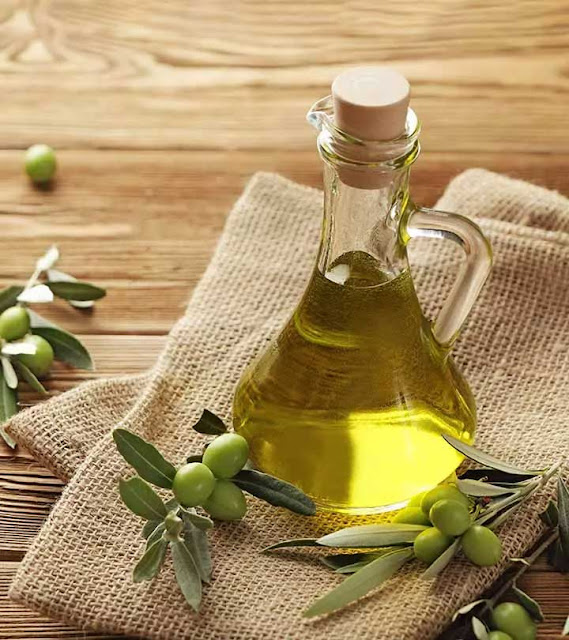Acne scars are the result of inflamed blemishes caused by skin pores clogged with excess sebum, dead skin cells, and bacteria. The pores swell, and the walls of the plugged follicles break down, resulting in lesions. Although the skin attempts to repair these damaged tissues, it cannot go back to its original state immediately. Some people swear by olive oil to help lighten acne scars.
Does olive oil heal acne scars? Let’s find out.
Can Olive Oil Treat Acne Scars?
While some people endorse the virtues of olive oil in treating acne and acne scars, there’s very little scientific evidence to prove these effects. Most experiments involving olive oil are conducted on mice. There is no concrete evidence to prove its effectiveness in treating human skin conditions.
However, besides cooking, the general population uses olive oil on a large basis as a remedy for treating various skin conditions. It is also used in a number of cosmetics. But does it actually work for acne scars? Here’s what science says.
- An animal study found that oleic acid, a fatty acid that makes up to 83% of olive oil, triggered acne (1).
- Another study found that olive oil reduced skin integrity and caused mild erythema in adults. The experiment also showed that olive oil might damage the skin barrier and promote the development of and worsen atopic dermatitis (2).
- The oleic acid in olive oil can aid the breeding of acne-causing bacteria ( acne) on the skin. It helped the bacteria attach themselves to the follicles (3).
- Olive oil has a comedogenic rating of 2, which means it may clog the skin pores (4).
These studies clearly indicate that olive oil cannot treat acne or acne scars. However, if you have acne-free skin and want to use olive oil to moisturize it and protect it against UV damage, here’s how you can use it.
Olive Oil For The Skin
- A mice study showed that the phenolic compounds in olive oil could prevent oxidative stress (the process of damaging skin cells) (5). Another mice study shows that olive oil may help fight sun damage, prevent photoaging, and reduce skin tumors (6). However, more studies are needed to establish this effect on human skin.
- Olive oil possesses antibacterial properties (7). But more scientific studies are needed to prove its effectiveness in treating bacteria on the skin.
- Other potential benefits of using olive oil on the skin due to its anti-inflammatory and antioxidant effects are its ability to delay skin aging, promote wound healing (dermal reconstruction), and prevent skin cancer. However, these effects were seen in mice, and more studies are needed on humans (5).
- Olive oil contains vitamins E and K and beta-carotene (precursor for vitamin A) (8). These nutrients may help improve skin health.
- Some anecdotal evidence suggests that olive oil can help moisturize and soften the skin.
How To Use Olive Oil On The Skin
- Apply the oil on your face in circular motions with your fingertips. Gently massage your nose, cheeks, and forehead.
- Dip a cloth in hot water and hold it against your face until it cools down to room temperature.
- Remove the cloth and rinse it with hot water. Press the damp cloth and rub it all over your face gently to remove the remaining oil on your skin.
- Pat your face dry with a soft towel.
Olive oil doesn’t treat acne scars. However, there are other treatment options available that can improve their appearance. Take a look.
Other Treatments For Acne Scars
- Topical Retinoids – Over-the-counter medications that contain glycolic acid may help treat acne scars.
- Dermal Fillers – Plumping depressed contours caused by acne pits.
- Microdermabrasion – Remodelling skin’s structure (removing the skin’s outer layer).
- Laser treatment – Using intense light to stimulate dermal fibroblasts.
- Needling – Puncturing the outer layer of the skin with sharp needles to boost collagen.
- Natural Remedies – Botanicals or essential oils that may lighten the acne scars.
The Final Word
If you want to use olive oil on your skin for other purposes, there is no harm. However, if you have oily or acne-prone skin, olive oil can worsen the condition.
If you want to get rid of acne scars permanently, consult a dermatologist for the best treatment option based on your skin type and extent of scarring.
EXPERT’S ANSWERS FOR READERS’ QUESTIONS
Q. WHAT OIL IS BEST TO TREAT ACNE SCARS?
A. TEA TREE OIL POSSESSES ANTIMICROBIAL PROPERTIES THAT CAN HELP REDUCE MILD ACNE (9).Q. IS OLIVE OIL BAD FOR ACNE?
A. YES, IT CAN BREED THE BACTERIA THAT CAUSE ACNE. HENCE, IT IS NOT RECOMMENDED FOR TREATING ACNE.
Important Notice: This article was originally published at www.stylecraze.com by Pooja Karkala where all credits are due.
The watching, interacting, and participation of any kind with anything on this page does not constitute or initiate a doctor-patient relationship with Dr. Farrah®. None of the statements here have been evaluated by the Food and Drug Administration (FDA). The products of Dr. Farrah® are not intended to diagnose, treat, cure, or prevent any disease. The information being provided should only be considered for education and entertainment purposes only. If you feel that anything you see or hear may be of value to you on this page or on any other medium of any kind associated with, showing, or quoting anything relating to Dr. Farrah® in any way at any time, you are encouraged to and agree to consult with a licensed healthcare professional in your area to discuss it. If you feel that you’re having a healthcare emergency, seek medical attention immediately. The views expressed here are simply either the views and opinions of Dr. Farrah® or others appearing and are protected under the first amendment.
Dr. Farrah® is a highly experienced Licensed Medical Doctor certified in evidence-based clinical nutrition, not some enthusiast, formulator, or medium promoting the wild and unrestrained use of nutrition products for health issues without clinical experience and scientific evidence of therapeutic benefit. Dr. Farrah® has personally and keenly studied everything she recommends, and more importantly, she’s closely observed the reactions and results in a clinical setting countless times over the course of her career involving the treatment of over 150,000 patients.
Dr. Farrah® promotes evidence-based natural approaches to health, which means integrating her individual scientific and clinical expertise with the best available external clinical evidence from systematic research. By individual clinical expertise, I refer to the proficiency and judgment that individual clinicians acquire through clinical experience and clinical practice.
Dr. Farrah® does not make any representation or warranties with respect to the accuracy, applicability, fitness, or completeness of any multimedia content provided. Dr. Farrah® does not warrant the performance, effectiveness, or applicability of any sites listed, linked, or referenced to, in, or by any multimedia content.
To be clear, the multimedia content is not intended to be a substitute for professional medical advice, diagnosis, or treatment. Always seek the advice of your physician or other qualified health providers with any questions you may have regarding a medical condition. Never disregard professional medical advice or delay in seeking it because of something you have read or seen in any website, video, image, or media of any kind.
Dr. Farrah® hereby disclaims any and all liability to any party for any direct, indirect, implied, punitive, special, incidental, or other consequential damages arising directly or indirectly from any use of the content, which is provided as is, and without warranties.


